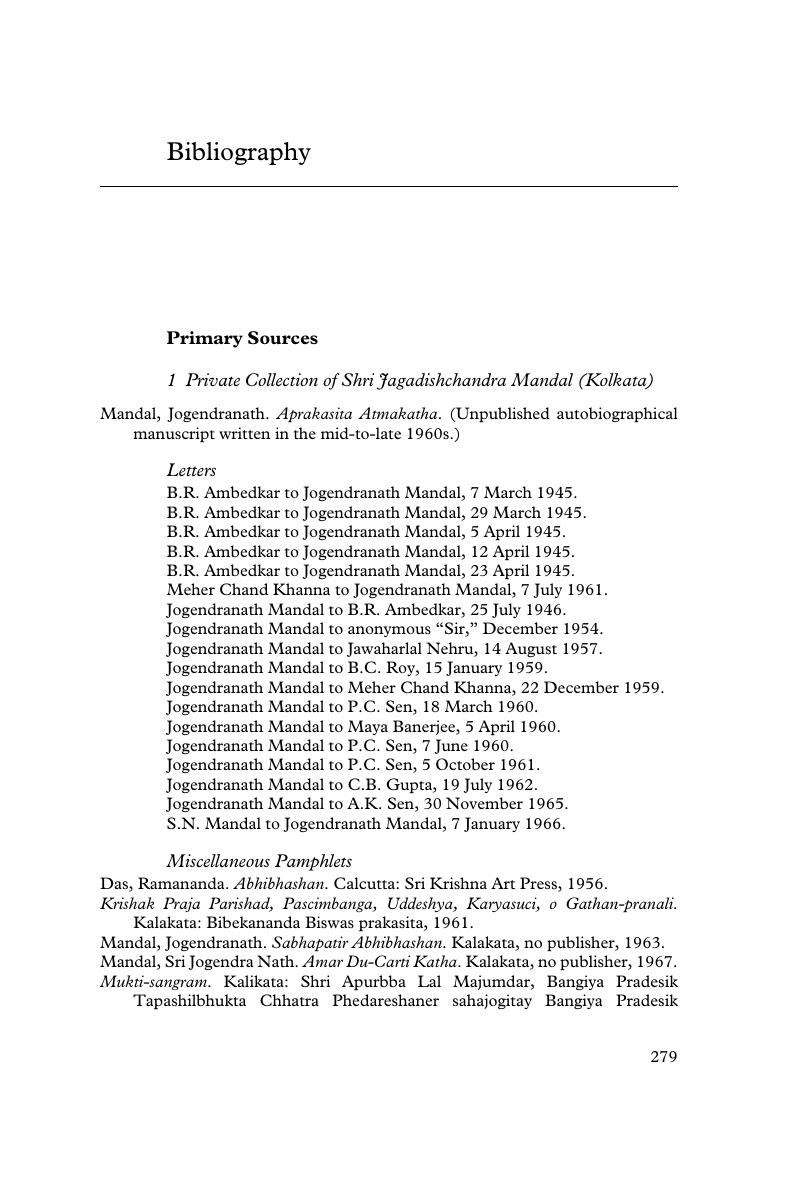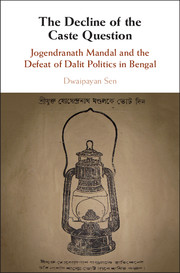Book contents
- The Decline of the Caste Question
- The Decline of the Caste Question
- Copyright page
- Dedication
- Contents
- Figures
- Tables
- Acknowledgments
- Introduction: Rethinking Castelessness in Mid-Twentieth-Century Bengal
- 1 Jogendranath Mandal, the Politics of Caste, and Provincial Autonomy, 1932–1937
- 2 Representation, Education, and Agrarian Reform
- 3 A Separate Political Existence
- 4 “No Matter How, Jogendranath Had to Be Defeated”
- 5 Betrayed Expectations
- 6 “A Caste Hindu State”
- 7 The Decline of the Caste Question
- Conclusion: “The Most Casteist Society in India”
- Bibliography
- Index
- References
Bibliography
Published online by Cambridge University Press: 09 July 2018
- The Decline of the Caste Question
- The Decline of the Caste Question
- Copyright page
- Dedication
- Contents
- Figures
- Tables
- Acknowledgments
- Introduction: Rethinking Castelessness in Mid-Twentieth-Century Bengal
- 1 Jogendranath Mandal, the Politics of Caste, and Provincial Autonomy, 1932–1937
- 2 Representation, Education, and Agrarian Reform
- 3 A Separate Political Existence
- 4 “No Matter How, Jogendranath Had to Be Defeated”
- 5 Betrayed Expectations
- 6 “A Caste Hindu State”
- 7 The Decline of the Caste Question
- Conclusion: “The Most Casteist Society in India”
- Bibliography
- Index
- References
Summary

- Type
- Chapter
- Information
- The Decline of the Caste QuestionJogendranath Mandal and the Defeat of Dalit Politics in Bengal, pp. 279 - 291Publisher: Cambridge University PressPrint publication year: 2018



